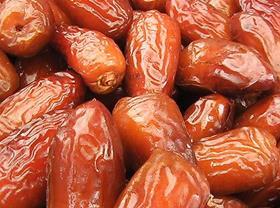
Tunisian companies will be attending leading organic fair BioFach later this month in order to shed some light on the country's great potential in the sector, according to African Manager.
For exports of organics to the EU, Tunisia boasts a number of advantages, including its climate, early production, competitive prices and proximity to the market.
According to official data, Tunisia has around 225,000-285,000ha of land currently under organic production. Back in 2000, this figure stood at just 8,900-19,000ha. The number of organic farmers has almost quadrupled since 2002.
Production volumes of organics have increased from 9,000 tonnes in 2002 to some 170,000 tonnes in 2008, with the biggest rise occurring in fruit and vegetables, including dates, almonds, potatoes, artichokes and aubergines.
Now the country is looking to increase its exports through promotional activities on local and foreign markets and through the introduction of a national organic label.
With this label, Tunisian growers hope to gain international recognition for the country's organic produce.
The stated target is to boost export volumes from 2008's 10,000 tonnes to 18,250 tonnes by 2011. Date exports are projected to rise from 2,300 tonnes in 2008 to 4,000 tonnes next year.



